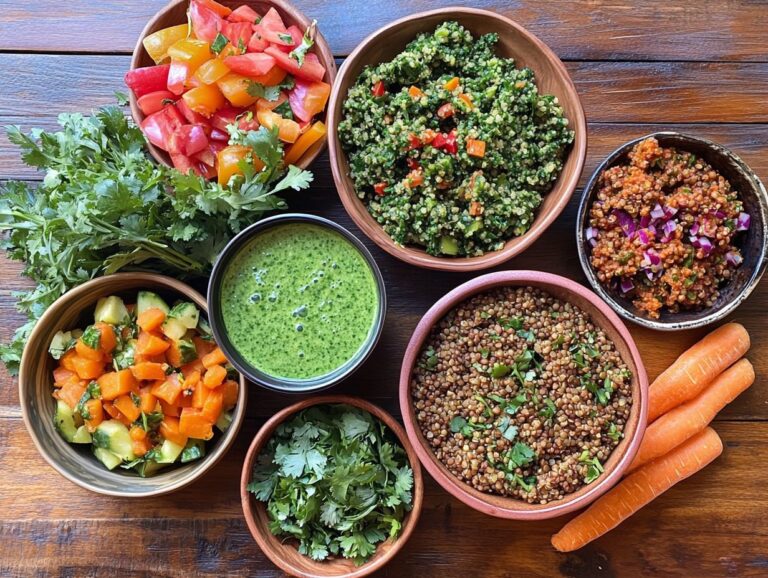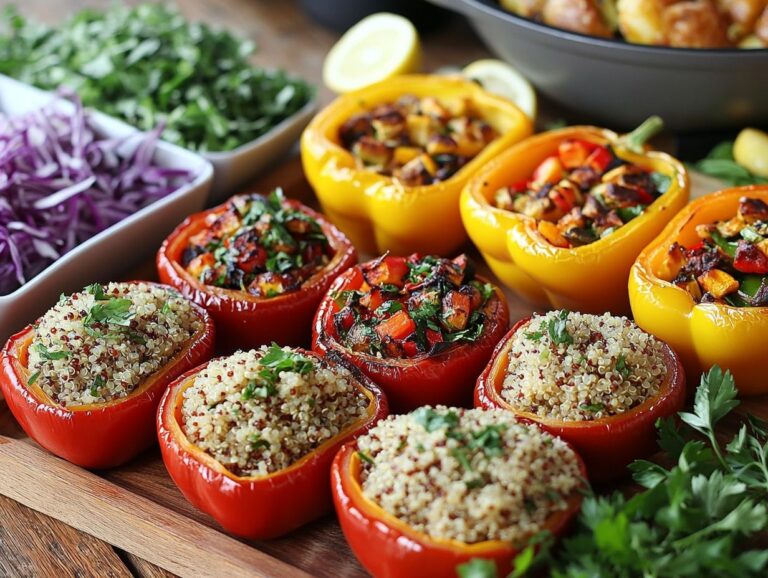Autoimmune diseases can significantly impact daily life, but adopting certain diets, such as a therapeutic diet, may help alleviate symptoms and promote the body’s proper functioning. The Autoimmune Protocol (AIP) diet is a popular elimination diet approach that focuses on the consumption of nutrient-dense, healing foods while eliminating those that trigger inflammation. This article outlines the fundamental principles of autoimmune diseases and the AIP diet, while also providing AIP-friendly vegan alternatives that meet both dietary and culinary needs, enhancing your wellness journey. From breakfast to snacks, there are AIP-compliant ideas for every meal of the day. Additionally, tips for following the vegan AIP protocol will help ensure motivation and support throughout the journey.
Understanding Autoimmune Diseases and the AIP Diet
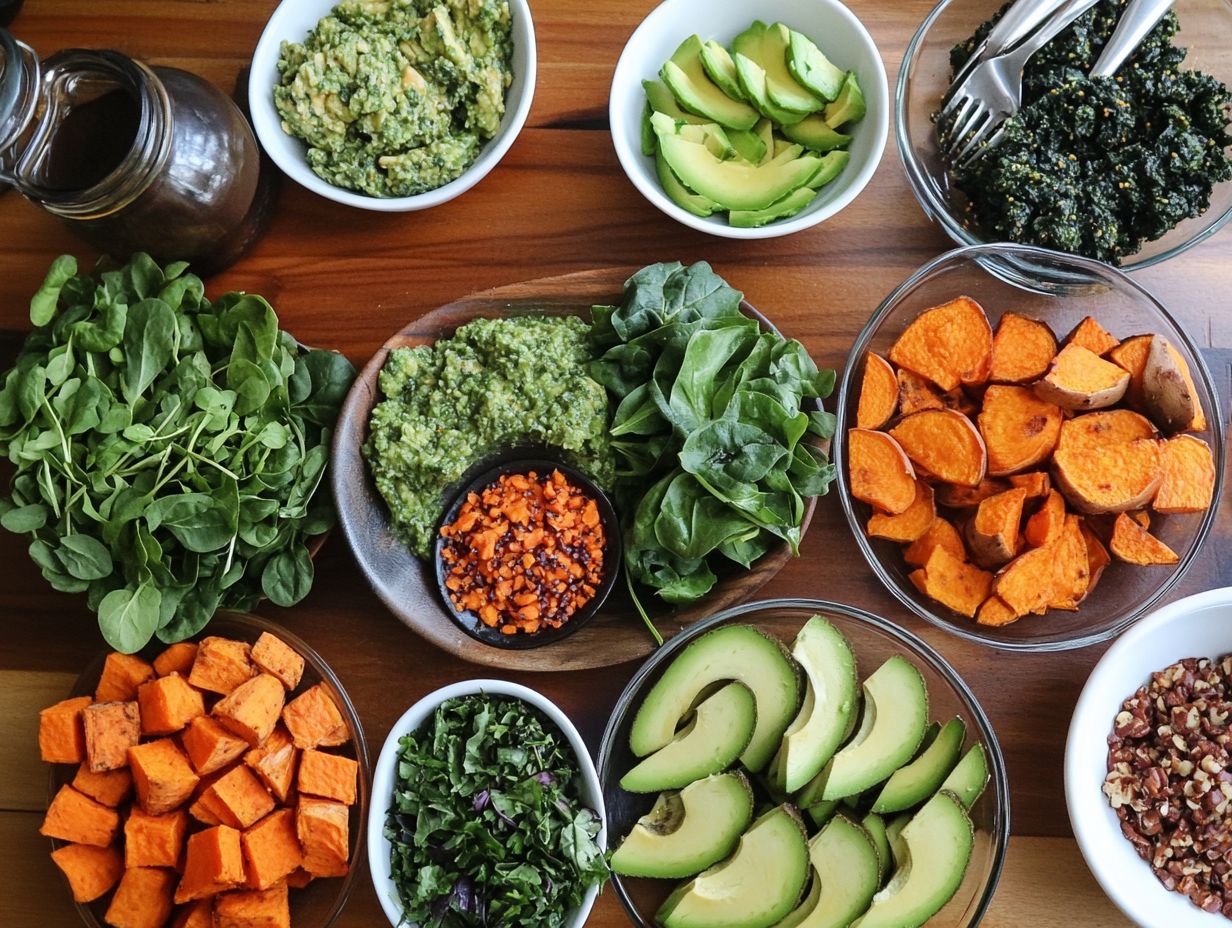
Autoimmune diseases are a group of disorders characterized by an abnormal immune response against the body’s own tissues. These diseases can lead to a wide range of chronic symptoms, including inflammation, fatigue, and pain.
The Autoimmune Protocol (AIP) diet aims to alleviate symptoms of autoimmune diseases by focusing on the consumption of nutrient-dense, whole foods that promote gut health and support immune function, while eliminating foods that may trigger sensitivities.
The AIP diet emphasizes anti-inflammatory foods such as vegetables, fruits, healthy fats, and healing herbs and spices, making it a comprehensive approach to restoring health and wellness through food as medicine.
What is an Autoimmune Disease?
An autoimmune disease is an illness in which the immune system mistakenly attacks and destroys its own healthy cells, leading to chronic disease and inflammation that can affect multiple body systems.
These disorders can manifest in various forms, from rheumatoid arthritis, which primarily impacts the joints, to lupus, which can have systemic effects involving the skin, kidneys, and heart.
Individuals may experience a wide array of symptoms, including fatigue, pain, and swelling, which can limit daily functioning and result in additional complications over time, underscoring the importance of symptom management.
As inflammation persists due to the immune system’s erroneous responses, the individual’s overall health may deteriorate, highlighting the importance of effective management and treatment plans tailored to each specific autoimmune disease.
Overview of the AIP Diet
The AIP diet, or Autoimmune Protocol diet, is an elimination diet designed to enhance health by removing inflammatory foods and emphasizing nutrient-dense, healing foods that support recovery and promote gut health, digestive support, and immune support.
This diet typically begins with an elimination phase lasting about 30 to 90 days, during which individuals avoid certain food groups known to trigger inflammation, such as grains, legumes, and dairy. The aim is to reduce symptoms and identify specific food sensitivities.
Following this phase, a reintroduction phase allows for the gradual reintroduction of these foods, one at a time, to monitor their effects. This structured approach offers insights into how specific foods impact the body, ultimately leading to a more personalized and well-balanced diet that supports autoimmune relief, health benefits, and enhances overall health through anti-inflammatory benefits.
Vegan Alternatives for AIP Recipes
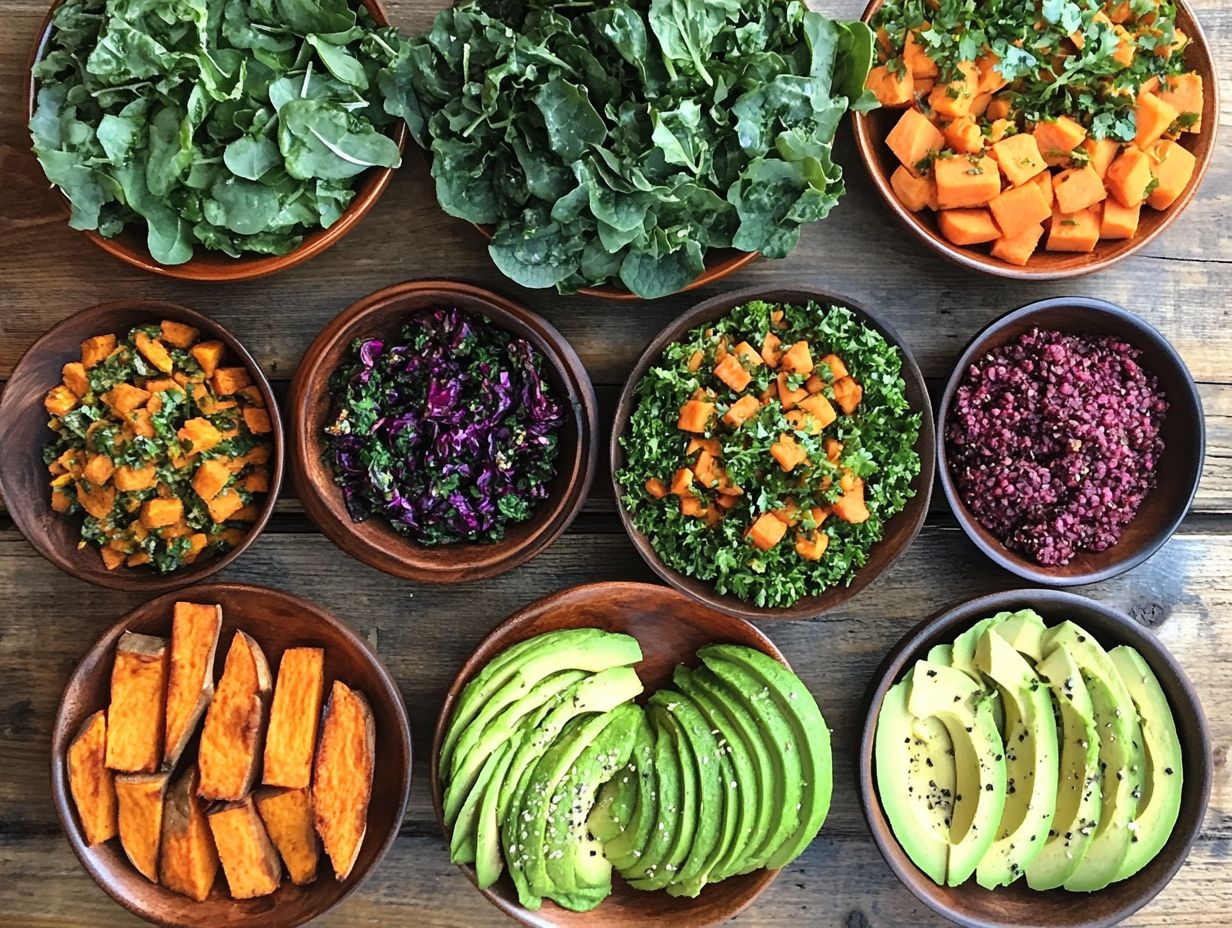
Discovering vegan alternatives for AIP recipes can be a fulfilling way to meet your plant-based dietary needs while adhering to the Autoimmune Protocol, utilizing culinary creativity and simple ingredients.
This journey introduces you to a variety of healthy foods that can contribute to both healing and flavor, supporting overall well-being.
Plant-based Protein Sources
Plant-based protein sources are essential for balanced, energy-boosting nutrition on AIP vegan diets. Options such as legumes, nuts, and seeds provide excellent sources of protein that support health goals and symptom relief.
For instance, chickpeas can be transformed into a creamy dip to serve with vegetables or crackers, or they can be added to salads and grain bowls for a heartier meal, contributing to food pairing and culinary exploration. Along with being a great protein source, chickpeas are rich in fiber, manganese, folate, and iron, making them a nutritious addition to any dish.
Pumpkin seeds are another valuable option, as they are high in magnesium, which helps regulate blood pressure and blood sugar levels. They can be easily sprinkled over salads or incorporated into homemade protein or energy balls. A handful of pumpkin seeds can also be blended into smoothies for an extra boost of protein and flavor.
Hemp hearts are rich in omega-3 fatty acids and can be easily incorporated into oatmeal, hot cereals, smoothies, salads, and yogurt. With their mild, nutty flavor, hemp hearts work well in both sweet and savory dishes, making them a versatile addition to any meal.
Non-Dairy Milk Substitutes
Non-dairy milk substitutes, such as coconut milk and almond milk, are among the most popular ingredients in vegan AIP cooking, offering gluten-free and dairy-free options. They offer creamy textures and versatile cooking and baking applications without the inflammatory effects of dairy.
These alternatives provide a wide range of choices that can be tailored to individual dietary needs and preferences, enhancing culinary creativity and flavor profiles.
- For instance, oat milk, made from whole oats, contains beta-glucans that support heart health.
- Hemp milk is rich in omega-3 fatty acids, which are beneficial for overall well-being.
- Rice milk, with its naturally sweet flavor, serves as an excellent base for desserts and is commonly used in various recipes.
Incorporating these non-dairy options into smoothies, soups, and baked goods adds flavor and creaminess while adhering to both vegan and AIP dietary guidelines, allowing for creativity in the kitchen without compromising health.
Breakfast Recipes
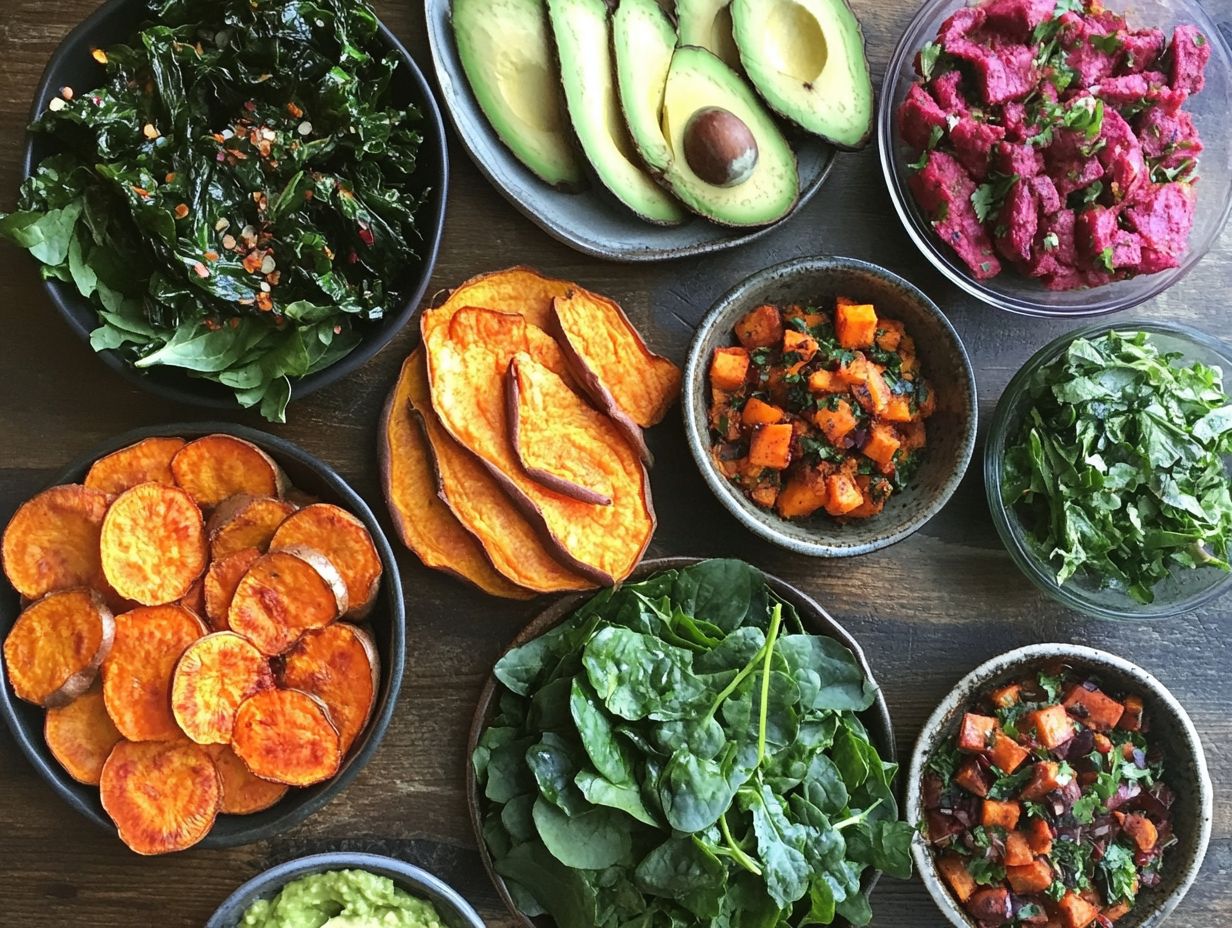
Vegan breakfast recipes that are also compliant with the Autoimmune Protocol (AIP) provide the body with essential nutrients, energy, and flavor to kickstart the day, incorporating traditional cooking methods.
Simple and Nutritious Options
Simple and nutritious breakfast options, such as smoothies and chia pudding, can offer a quick and satisfying start to your day while adhering to AIP and vegan dietary guidelines with mindful eating. These meals can be prepared in just a few minutes and provide a variety of flavors and textures that are truly enjoyable.
For example, blending fresh fruits like bananas or berries with coconut milk results in a creamy smoothie that is rich in antioxidants and essential vitamins. Alternatively, chia pudding, made by soaking chia seeds in almond or coconut milk overnight, serves as a delightful option, providing a rich source of omega-3 fatty acids and fiber.
Adding ingredients like maple syrup or cinnamon can enhance the flavors while aligning with your dietary needs, ensuring that your breakfast is both delicious and health-promoting, focusing on holistic health.
Lunch and Dinner Recipes
Recipes for lunches and dinners that are both nutritious and compliant with the vegan AIP diet offer a rich and varied culinary experience while maximizing the health benefits of wholesome ingredients through balanced meals and mindful cooking.
Delicious and Nourishing Meals
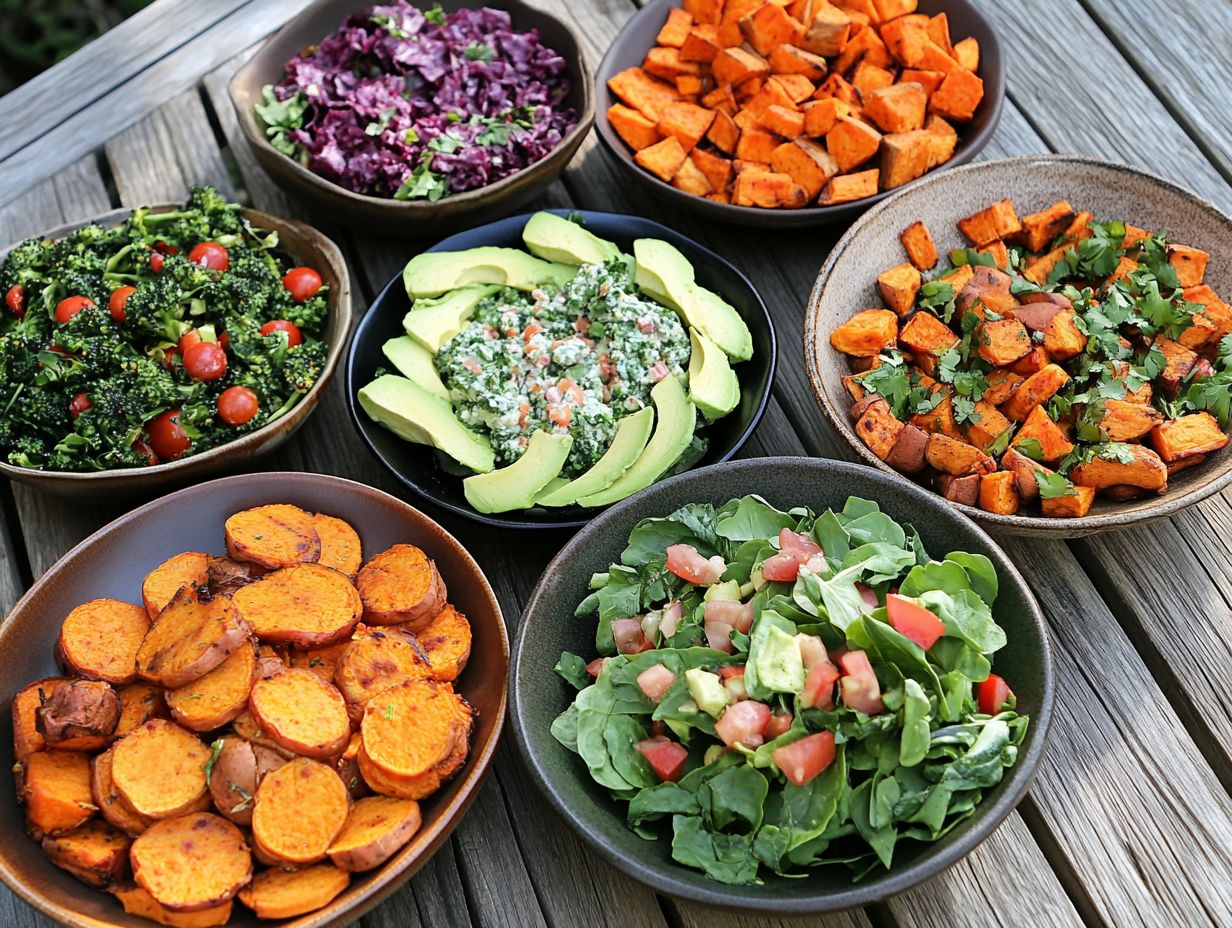
Vegan whole foods that are compliant with the Autoimmune Protocol (AIP) can be used to create delicious and nourishing meals that both satisfy cravings and promote overall health, utilizing food substitutions and preparation techniques.
Snack and Dessert Recipes
Healthy snack and dessert recipes that adhere to both vegan and AIP diets are effective in curbing cravings while providing essential nutrients, supporting body awareness and wellness.
Therefore, these recipes should be incorporated into your meal plans.
Healthy and Satisfying Treats
Healthy and satisfying treats can be part of a vegan AIP diet, allowing you to indulge your sweet tooth without compromising a balanced diet.
These delicious options are crafted using AIP-compliant ingredients that promote overall wellness while adhering to dietary restrictions, showcasing culinary healing and resourceful cooking. By incorporating nutrient-dense foods like coconut, yams, and various fruits, you can create dishes that are not only flavorful but also beneficial for your health.
Coconut is rich in healthy fats that support heart health, while sweet potatoes provide a good source of beta-carotene and fiber, which are important for digestive health.
Recipes such as mango chia pudding or chocolate avocado mousse make dessert time guilt-free, making it easier to maintain a balanced vegan diet that offers both flavor and health benefits.
Tips for Successfully Following a Vegan AIP Diet
A vegan AIP (Autoimmune Protocol) diet can be sustainable in the long term when approached with proper planning, preparation, motivation, and support, emphasizing sustainable eating and lifestyle changes.
By implementing strategies for sustainable lifestyle changes, individuals can successfully follow this diet and improve their overall health, engaging in mindful eating and culinary creativity.
Meal Planning and Preparation
Meal planning and preparation are essential for adhering to a vegan AIP diet, as they ensure that you have the necessary ingredients to create healthy meals throughout the week, supporting kitchen tips and meal prep efficiency. The benefits of effective meal planning and preparation include simplifying cooking, reducing stress, and enhancing dietary variety.
To start weekly meal planning for a vegan AIP diet, begin by creating a grocery list focused on AIP-approved fruits and vegetables, protein sources, and essential spices and herbs that align with vegan guidelines, encouraging the use of seasonal produce and allergen-free ingredients.
Batch cooking can be particularly beneficial; dedicating a few hours to prepare larger quantities of food can result in ready-to-eat meals that help you stay on track with your health goals.
Incorporating a variety of recipes into your meal planning not only prevents dietary monotony but also ensures you receive a broad spectrum of nutrients essential for a healthy diet, fostering vitamin-rich, antioxidant-rich, and mineral-rich meals.
Staying Motivated and Finding Support
Maintaining motivation and a sense of community while following a vegan AIP diet can be challenging, but connecting with others on similar wellness journeys can provide valuable support and inspiration. However, connecting with others on the same health journey can be incredibly beneficial, offering insights into health-focused cooking methods and supportive ingredients.
Joining online organizations dedicated to the vegan AIP lifestyle can offer valuable resources and support, making it easier to adhere to the dietary restrictions of an elimination diet. Building connections with others in similar situations fosters a sense of community and allows for the exchange of advice on meal preparation, ingredient substitutions, and symptom management. Embracing a plant-based approach can enhance overall wellness and provide digestive support through the consumption of healing foods rich in nutrients.
Additionally, vegan AIP-specific cookbooks and food blogs can introduce new recipes and cooking techniques, helping to keep meals exciting and nutrient-dense. This reinforces the idea that following this autoimmune protocol diet is not about deprivation, but rather about embracing a vibrant and creative approach to healthy living with whole foods. Incorporating anti-inflammatory herbs, spices, and seasonal produce can enhance flavor profiles and contribute to symptom relief from chronic illness and autoimmune diseases.
